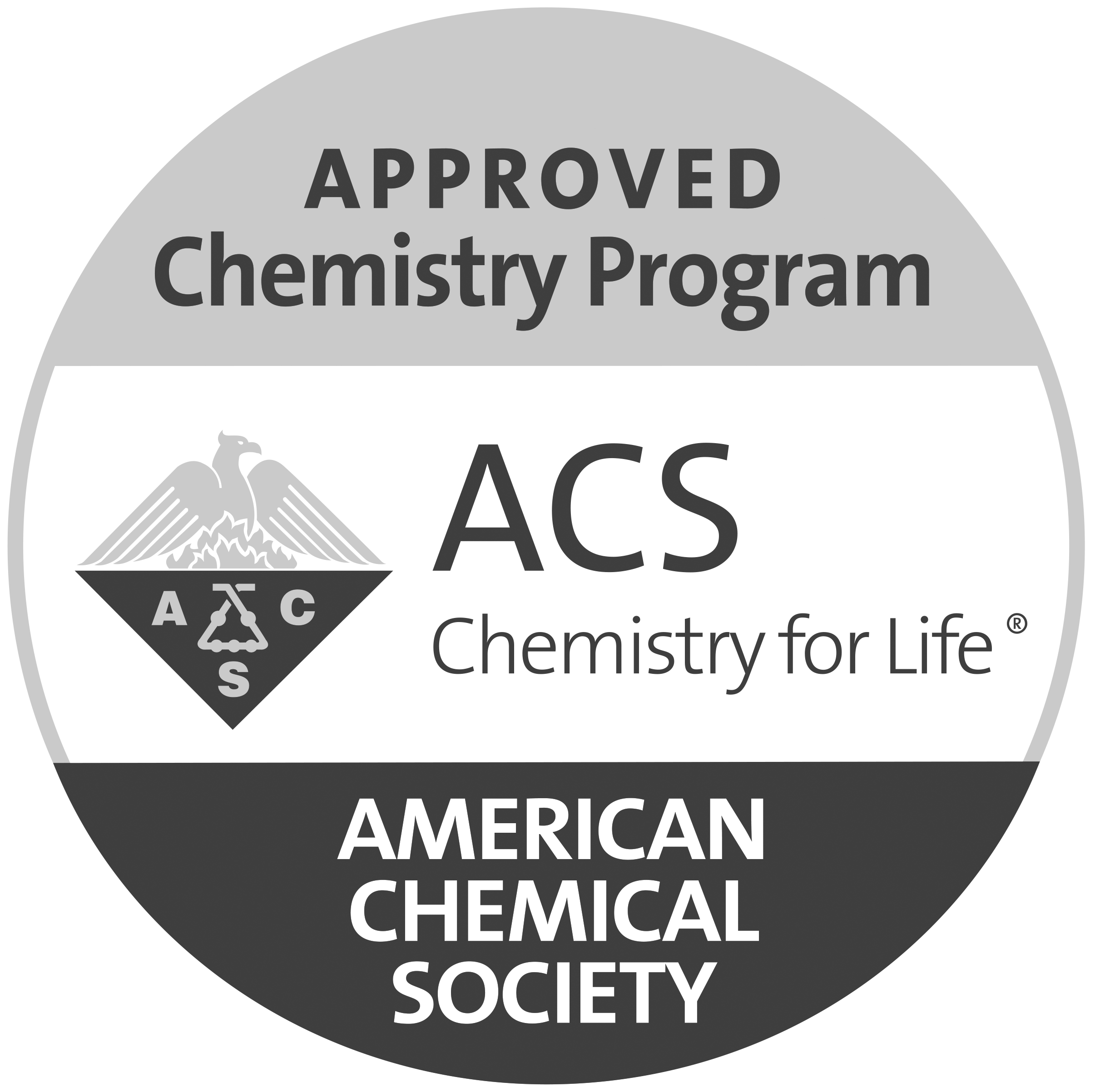Small classes, big learning experiences
Do you lie awake at night trying to determine the chemical composition of your favorite toothpaste? Do you dream of developing life-saving pharmaceuticals to treat a devastating disease? Then it sounds like you’re ready to dive into SFA’s chemistry department!
We believe in a well-rounded chemistry education that takes place inside and outside the classroom. We want you working with your mind and hands, and we believe you should learn with our high-tech lab equipment as soon as possible. We keep our classes small, focusing on each student. You’ll get to know your professors at SFA, and you’ll graduate with the kind of inspirational mentors and research experiences that students at other universities rarely enjoy.
Chemistry career opportunities
- Work in a high-tech lab, researching for government or industry on everything from agriculture to aeronautics
- Translate the language of chemistry as a technical writer
- Educate the next generation of chemists at the high school or collegiate level
- Use your strong undergraduate education in pursuit of further studies in chemistry and related fields, including medical, dental or veterinary school
A focus on research
We give our students a complete education by having them do a research project over several semesters. Students present their research for a senior capstone project. Some students go on to present at national conferences, obtain awards and publish their research before they graduate.
Undergraduate programs and requirements
Bachelor of Science in Chemistry
The chemistry degree program is accredited by the American Chemical Society and involves a highly structured sequence of courses with prerequisites. Some courses are only taught once per year. Taking courses in their proper sequence and in a timely manner is important for planning to graduate with a degree in four years. Talk to your SFA advisor about how you can save money and earn your degree faster by testing out of certain courses. SFA suggests several chemistry degree plans, depending on the student’s mathematical readiness.
Choosing a minor
Depending on career and personal interests, students pursuing a bachelor’s in chemistry may select any minor that is offered in the university or obtain approval from the department for a concentration area.
Degree concentrations
We want to tailor your chemistry education to meet your career goals. SFA offers the following concentrations within the chemistry degree program:
- Professional Chemistry – This curriculum is designed for students who wish to pursue graduate education for a research career in chemistry or in a chemical industry. The curriculum includes advanced coursework in all five subdisciplines of chemistry (analytical, biochemistry, organic, inorganic and physical). Students selecting the professional chemistry concentration are free to choose any minor; however, the combined science minor is highly recommended.
- JacksTeach (secondary education) – This curriculum is designed for students whose career goals are in the education field. Secondary education students are required to have a JacksTeach concentration.
- Interdisciplinary – This curriculum is designed for students interested in learning chemical sciences; however, other options may be considered with department approval. Although chemistry is a distinct subject or discipline of inquiry, it contributes to all science disciplines and is interdisciplinary by nature. For this reason, this concentration allows students the flexibility to supplement a core study of chemistry with courses in other science fields. The curriculum provides students with the intellectual tools to integrate their concentration areas, engage in interdisciplinary problem-solving, and prepare for careers and/or graduate programs that increasingly cross disciplinary boundaries. Graduates are prepared for entry into the job market, graduate study in the sciences or an interdisciplinary area, as well as medical, law or business schools.
Five-year dual degree
With careful planning, it is possible to condense the conventional six-year plan of study typically required to earn both a bachelor’s and a master’s degree into five years. By using the summers to remove prerequisite blocks, balance academic loads and begin research work as an undergraduate, a student can earn both degrees in five calendar years.
Graduate programs and requirements
The Department of Chemistry and Biochemistry offers several graduate programs for students interested in advanced degrees.
 Axe ’Em, Jacks!
Axe ’Em, Jacks!

